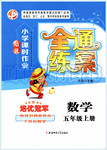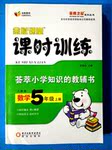阅读理解。
What has the telephone done to us or for us in the hundred years of its existence? A few effects suggest
themselves at once. It has saved lives by getting rapid word of illness, injury, or fire from distant places. By
joining with the lift to make possible the multi-story building or office building, it has made possible-for better
or worse-the modem city. By bringing about a great leap in the speed and ease with which information moves
from place to place, it has greatly sped up the rate of scientific and technological changes and growth in
industry. Beyond doubt it has seriously weakened, if not killed, the ancient art of letter writing It has made living
alone possible for persons with normal desires; by so doing, it has played a mile in one of the greatest social
changes of this century, the breakup of the multi generational house-hold. It has made the war more efficient
than before. Perhaps though not provably (可证实), it has prevented wars that might have arisen out of
international misunderstanding caused by written communication. Or perhaps-again not probably-by
magnifying and extending irrational (非理性的) personal disagreement based on voice contact, it has caused
wars. Certainly it has extended the scope (范围) of human conflicts, since it fairly spreads the useful knowledge
of scientists and the nonsense of the ignorant (无知者), the affection of the affectionate and the malice (恶意)
of the malicious.
1. What is the main idea of the passage?
A. The telephone has helped to save people from illness and fire.
B. The telephone has helped to prevent wars and conflicts.
C. The telephone has made the modem city neither better nor worse.
D. The telephone has had positive as well as negative effects on us.
2. According to the passage,it is the telephone that _____.
A. has made letter writing an art
B. has prevented wars by avoiding written communication
C. has made the world different from what it was
D. has caused wars by extending human conflicts
3. The author describes the telephone as fair because it _____.
A. saves lives of people in distant places
B. enables people to live alone if they want to
C. spreads both love and ill will
D. replaces much written communication
4. The writer's attitude towards the use of the telephone is _____.
A. affectionate
B. disapproving
C. approving
D. neutral (中立的)

 小学课时作业全通练案系列答案
小学课时作业全通练案系列答案 金版课堂课时训练系列答案
金版课堂课时训练系列答案 单元全能练考卷系列答案
单元全能练考卷系列答案